News
Jamie Adams: “Something’s got to give”

 CONTINUING our interview with Council leader Jamie Adams about the County Council’s 21st Century Schools programme, we spoke about the Council’s plan for funding the scheme and future of secondary education in Pembrokeshire.
CONTINUING our interview with Council leader Jamie Adams about the County Council’s 21st Century Schools programme, we spoke about the Council’s plan for funding the scheme and future of secondary education in Pembrokeshire.
The question of funding
“We are lucky in Pembrokeshire,” begins Jamie Adams. He pauses. “No, not lucky: we have been very well-managed. As I said before, we are looking at using our assets more efficiently and disposing of part of our estate to release capital and reduce expenditure. The requirement for funding the schools programme has significantly increased in cost after the Welsh Government reduced its own input into it
“Our plan as a Council is to get one third or so of our funding from the Welsh Government, to raise one third of the funding through efficiency savings and asset sales, and to raise the rest by prudential borrowing. We are not looking, at this time, at models like the Private Finance Initiative or Public Private Partnerships.
“We are able to access prudential borrowing, because of the way we have managed the Council’s finances and thought strategically about the future. In the long-term prudential borrowing is likely to cost us a good deal less than other finance options
“While I am confident about funding the schools programme that does not mean there are not challenges we need to face: particularly about secondary education.
Populating the classrooms
“When we look at our schools provision for the 11 plus group, we have to look at the population of Pembrokeshire, more particularly its distribution.”
He gestures to the large map of Pembrokeshire on the wall to underline his point:
“We have eight secondary schools in Pembrokeshire and 1,000 spare spaces. In the future we are projected to have greater additional capacity. We have an unsustainable secondary education provision and it is clear something has to give.
“As to how our future provision will look: that is a matter for consultation. But we will have to make tough decisions and they should not be put off. The Welsh Government has given a very clear lead on reducing the amount of the education budget spent on spare capacity within the system. In a time when public finances are stretched we cannot afford to maintain underused buildings, under-occupied classrooms and excess school places.
“With those surplus places, we are spending a disproportionate amount of scarce resources in circumstances where there can be no positive return for that money in terms of outcomes for students. As an authority, our focus is very firmly on getting the best outcomes we can for investing in the education system.
“I understand the concerns of local communities. Other Cabinet members and I went out to listen to them and to get the views of Pembrokeshire’s people on how we could improve our services and deliver them more efficiently. As part of that exercise, I went to Saint Davids. There has been a lot of speculation about the future of Ysgol Dewi Sant and very strong local feeling has been expressed in the press and at public meetings. People who spoke to me there: well, it was not all about “don’t close the school”. Parents and other members of the community in Saint Davids were concerned about putting viable options forward for the future.
“It would be nice to have a federal structure with different parts of the curriculum delivered on different sites,” he gestures at the map again, “travel times between the scattered sites make that unsustainable and impractical.
A new plan for Pembrokeshire
“Of course, as a Council we have to make decisions in relation to the County-wide provision of secondary education. We have to consider what opportunities exist to improve our secondary provision and offer a broad and enriching education to kids.
“We have to be straight here: some pupils do not achieve academically in the current system. We want to provide opportunities for varied training and education post-14 in conjunction with Pembrokeshire College. Again, this is focussing on outcomes for all Pembrokeshire children.
“Traditionally, in my view, education in Pembrokeshire has been a ‘comfortable’ place to be. We’ve achieved ‘comfortable’ outcomes. My personal opinion is that for too long there has been a focus on obtaining a degree as the be all and end all of education. I profoundly disagree with that position, there has to be a good pathway for those who wish to follow vocational or career-based education and for those who are less-academically inclined.
“We have been in discussions with Pembrokeshire College about what we can do to improve the situation for 14-19 year olds. Those discussions have been frank on both sides: we have acknowledged and the College has acknowledged that there are things we do well and things we do not as well.
“That honesty and those discussions mean that we are in the process of forging a partnership that will substantially change the provision of education in Pembrokeshire for pupils after the age of 14. That partnership is based on us complementing what each other do.
“Every pupil deserves the chance to make the best of their abilities. I want to make sure that we improve the outcomes not only for those academically gifted students who progress on to higher education and go on to well paid, professional careers. We will continue to encourage those students and be pleased for their success. Outcomes exist, however, that cannot be measured simply in terms of only academic success. There is absolutely nothing wrong with a successful vocational education.
“What I want education in Pembrokeshire to achieve is to enrich learning, to motivate teachers and to achieve outcomes that bring out the very best in all of our children, be that in terms of academic success or otherwise. We want our children to be motivated to succeed wherever their strengths lie and to give them chances to do so, whether those strengths are academic, entrepreneurial, arts, or skilled trades.
“We are thinking for the medium to long-term: not quick fixes or fiddling around the edges. Some other local authorities have gone for easy solutions. I believe, in the future they will regret not taking the opportunities that the 21st Century Schools programme has offered them.”
It is time to go. We exchange pleasantries, shake hands and head our separate ways. As I head down the stairs, I thank the Council’s press officer who arranged the meeting.
Here at The Pembrokeshire Herald, we are sometimes critical of the Council and its IPPG leadership. We have occasionally suggested that they have got things wrong. But Jamie Adams has been brisk, professional and thoughtful – especially about some of the left-field questions thrown at him.
As I head out into a December evening, I reflect that Jamie Adams’ attitude to the future of Pembrokeshire’s education system is in marked contrast to the squally weather. He seems very certain, very confident.
Driving off into the rain, I can’t help thinking about the storm of public opinion as schools programme unfolds. It will be interesting, to interview him again when consultations have concluded, decisions have been made and the public have given their reaction to see how events have influenced the Council’s vision.
Business
Mounting complaints: More Computer Solutions Wales customers claim losses
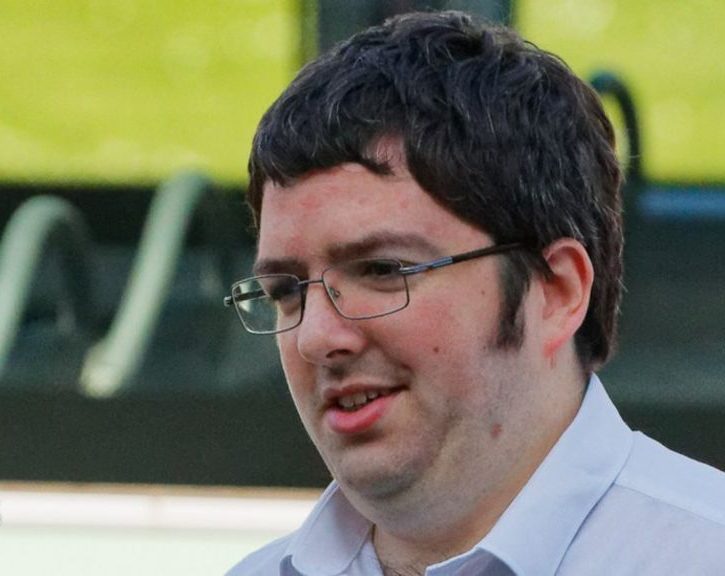
Business owner issues legal threats and IPSO complaint to this newspaper while refusing to answer detailed questions about customers who say they were ‘ripped off’
MULTIPLE customers and former associates have come forward to The Pembrokeshire Herald alleging they were left out of pocket after dealings with Computer Solutions Wales, a business operated by Steven Grant.
Following our earlier reporting more people have come forward. The Herald has now spoken to a growing number of individuals who describe similar experiences involving upfront payments, missing equipment, delays, and difficulties obtaining refunds or wages.
The allegations span a period from 2024 into 2025 and involve sums ranging from hundreds to several thousand pounds.
Grant denies wrongdoing and has refused to provide detailed comment on specific allegations, instead issuing legal threats demanding the newspaper cease reporting on the matter.
The Herald investigation is continuing.
Customers describe similar experiences
While each case has its own circumstances, complainants who contacted the newspaper independently described recurring themes:
• Requests for payment upfront
• Delays or lack of communication
• Explanations involving disputes with landlords or access to premises
• Assurances that work had been completed or refunds issued
• Difficulty recovering money or property
The Herald has reviewed bank statements, payment confirmations, correspondence, and message exchanges relating to several of the complaints.
There is currently no finding of criminal liability, and disputes of this nature are typically matters for civil courts. However, the number of individuals reporting similar experiences has raised public-interest concerns.
NHS worker says she lost laptop and repair payment
One of the most recent complainants, Emma Venables, an NHS worker, says she paid £589 in October 2024 to have her son’s water-damaged laptop repaired.
Bank records seen by the Herald confirm a Faster Payment of £589 made on Friday (Oct 11, 2024) to Computer Solutions.
Ms Venables says communication became sporadic despite repeated attempts to contact the business.
Messages reviewed by the Herald show Grant stating the laptop had been repaired but was locked inside premises due to a dispute with a landlord.
Ms Venables later gained access to the premises through a letting agent but says the laptop was not present.
Grant allegedly suggested the device may have been taken by others with access to the building.
Despite later agreeing to refund the payment, Ms Venables says no money was returned and she has been left both without the device and out of pocket.
She told the Herald the situation caused significant distress during a period when she was grieving the death of her husband.

Animator claims nearly £3,000 loss
Cardiff-based animator Rebecca Merrell says she transferred £2,964.55 in December 2024 for a custom-built computer system which she says was never delivered.
Bank documentation supplied to the Herald confirms the transfer was made via Faster Payments to an account linked to Grant’s business.
Ms Merrell alleges she received repeated assurances the computer had been completed and would be delivered, including claims it was already in Grant’s vehicle awaiting transport.
She further alleges she was sent screenshots appearing to show a refund had been issued, but no payment was ever received.
The Herald has reviewed copies of documents she provided.
Ms Merrell says she was unable to work for months without a replacement computer and had to borrow money from family to purchase another system elsewhere.
She described the experience as having a serious impact on her confidence and mental wellbeing.
Another customer reports lost laptop and payment
The Herald has also spoken to another customer who says they lost both a laptop valued at approximately £1,500 and £589 paid for repairs after handing the device to the business.
They say they were later told the computer had been inside premises affected by a landlord dispute and could not be accessed.
No refund was received.
Further individuals have contacted the Herald describing disputes involving payments for goods or services they say were not delivered or completed.
These claims are currently being reviewed.
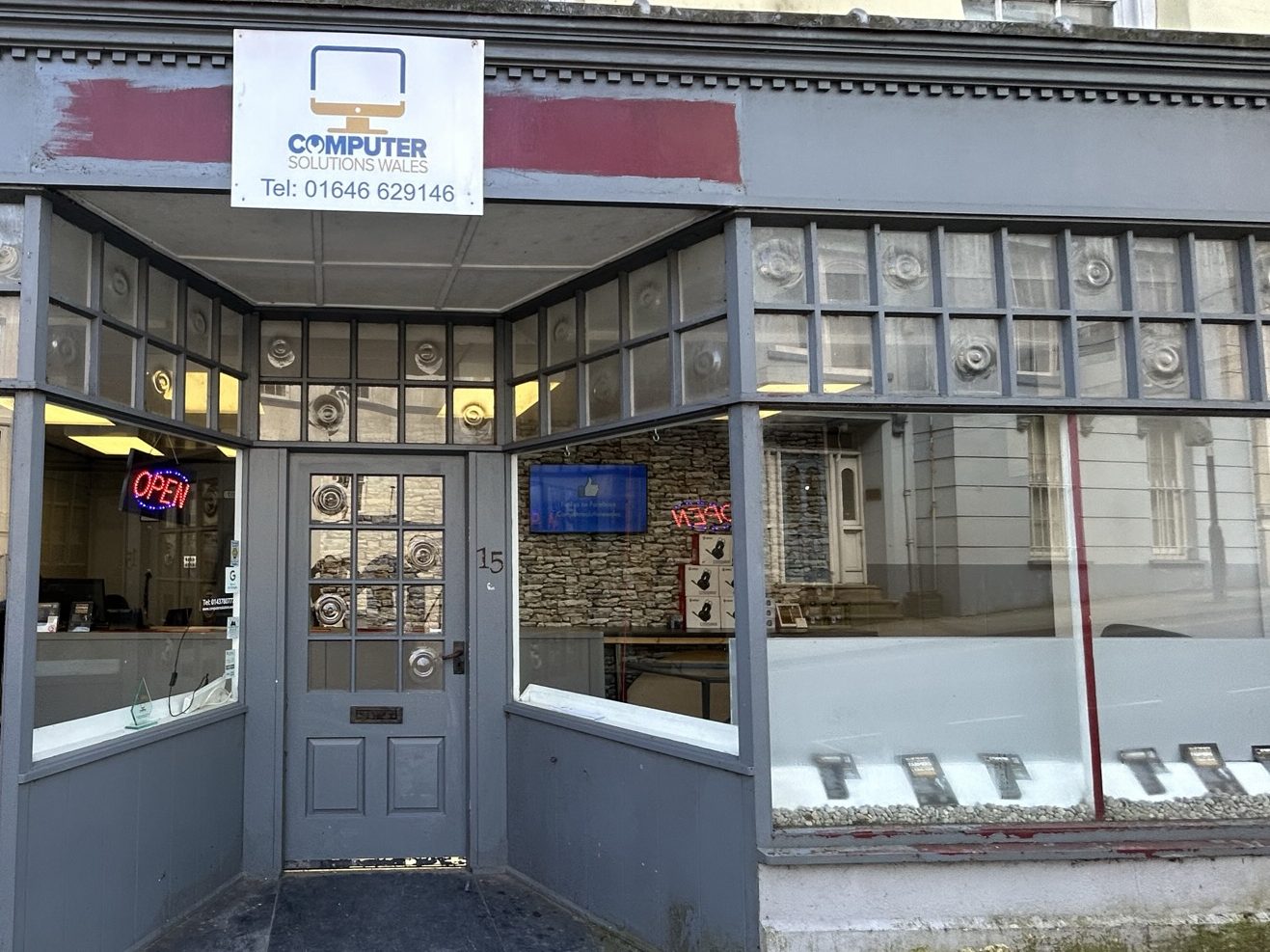
Former worker alleges unpaid wages
Separate to the customer complaints, the Herald has also been contacted by a former worker who claims they carried out work connected to the business but did not receive agreed payment.
Documentation relating to that claim has been shared with the newspaper.
The Herald understands the individual believes they are owed money and has considered pursuing recovery through civil action.
Grant has not provided a response to that allegation.
Timeline of disputes
Information provided to the Herald suggests the disputes span several months.
Some complainants describe making payments in late 2024 and experiencing ongoing communication issues into early 2025.
Others report refund promises that they say were not fulfilled.
The Herald is continuing to verify additional timelines as more individuals come forward.
Grant refuses detailed comment
The Herald contacted Steven Grant with detailed questions covering each allegation and the evidence provided by complainants.
He declined to respond to the specifics.
In correspondence, Grant said: “My mental health isn’t great.”
He also warned that further articles would result in legal action.
Legal threats issued to newspaper
Grant subsequently sent what he described as a “final and formal legal notice” to the Herald demanding:
• Immediate cessation of reporting
• Removal of published material
• A retraction
• Written confirmation within seven days
The Herald is continuing its reporting in the public interest.
Grant has also lodged a complaint with the Independent Press Standards Organisation (IPSO).
Right to reply offered
Grant has been given multiple opportunities to respond to the allegations raised by customers and former associates before publication of this article.
He declined to provide any substantive comment.
Customers considering legal action
Some complainants say they are considering civil claims or seeking advice from Trading Standards.
Others say personal circumstances prevented them from pursuing action sooner.
Investigation continues
Since the Herald began reporting on Computer Solutions Wales, additional individuals have contacted the newspaper with further accounts.
Journalists are currently interviewing witnesses and reviewing documentation to establish whether those complaints can be reported on the record.
Anyone with relevant information is invited to contact the newsroom confidentially.
Health
Health board confirms major hospital changes across west Wales
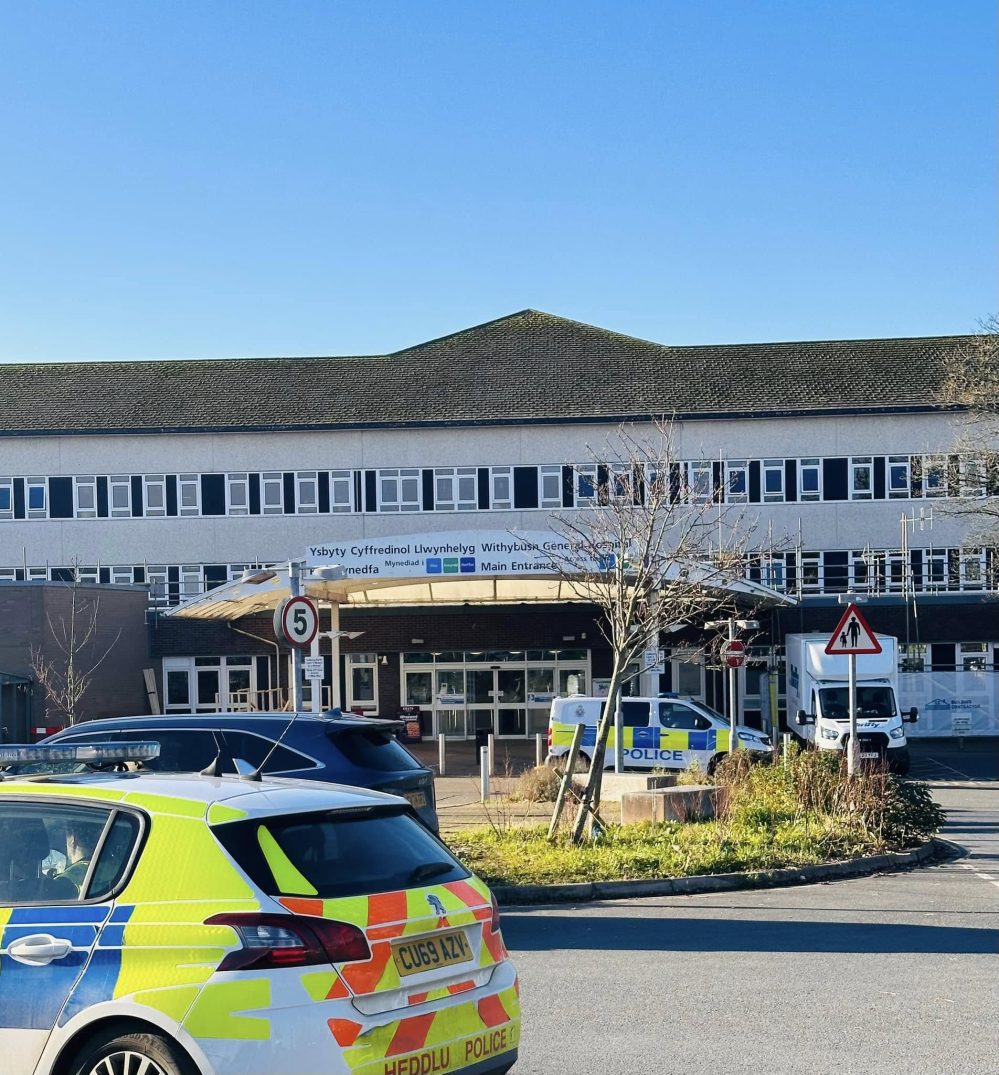
Emergency surgery centralised as Withybush role shifts toward planned care
MAJOR changes to hospital services across west Wales have been approved following an extraordinary meeting of Hywel Dda University Health Board on Thursday (Feb 19).
Board members agreed the next steps in the organisation’s Clinical Services Plan, covering nine services identified as under pressure or “fragile”, including emergency general surgery, critical care, stroke and orthopaedics.
The decisions will see some specialist services concentrated on fewer hospital sites, alongside plans to expand planned care at Prince Philip Hospital in Llanelli and Withybush Hospital in Haverfordwest.
Health chiefs stressed that no immediate changes would take place, with implementation expected to happen gradually over several years.
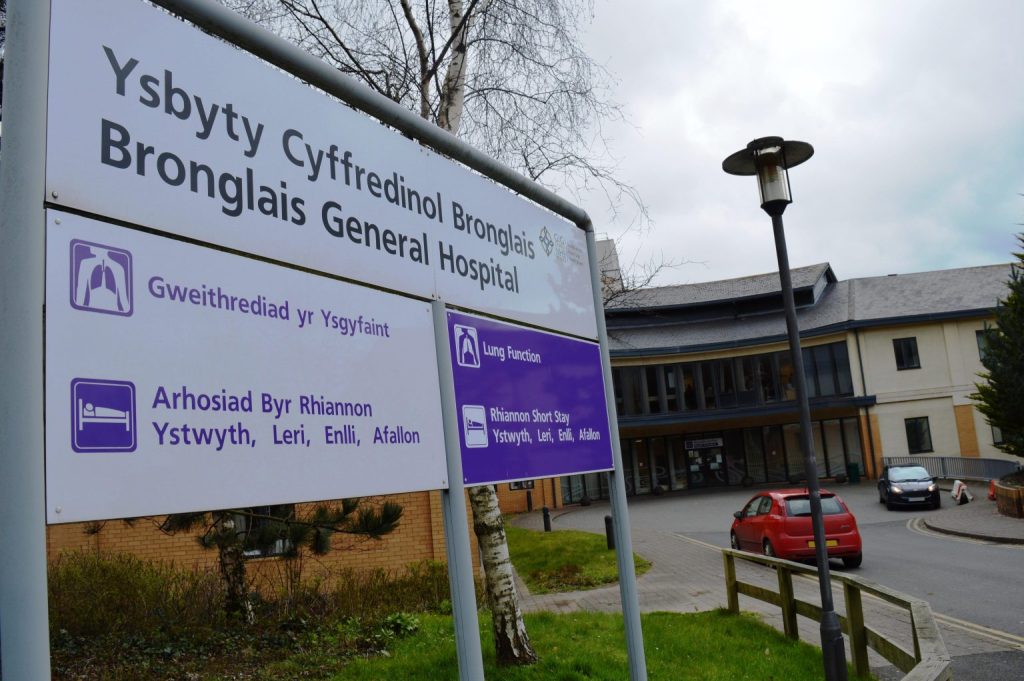
Consultation and decision process
During summer 2025, the Health Board carried out a major public consultation involving more than 4,000 questionnaire responses and engagement events attended by over 4,000 people.
An independent report produced by Opinion Research Services summarised the feedback, while board members also considered workforce pressures, clinical standards, estate issues and financial factors.
Twenty-two alternative proposals submitted by the public were formally assessed against criteria including sustainability, accessibility and deliverability.
Emergency surgery changes
Under the plans, emergency general surgery operations will be concentrated at Glangwili Hospital in Carmarthen and Bronglais Hospital in Aberystwyth.
Patients from Pembrokeshire requiring surgery will be transferred to Glangwili when operative treatment is needed.
However, emergency departments will continue operating as normal at all four hospitals.

Other service changes
Across the region, the approved direction includes:
• Intensive care units remaining at Bronglais, Glangwili and Withybush, with Prince Philip Hospital providing enhanced care for less critically ill patients.
• Dermatology services primarily based at Prince Philip Hospital, supported by community clinics and telemedicine.
• Endoscopy procedures brought together at Prince Philip while retaining bowel screening across sites.
• Ophthalmology services concentrated mainly at Glangwili with community provision elsewhere.
• Orthopaedic surgery expanding at Withybush for less complex procedures.
• Radiology retaining emergency imaging at all hospitals with new diagnostic hubs planned.
• Urology inpatient care centralised at Prince Philip Hospital.
Stroke services remain under review, with further public engagement planned before final decisions.
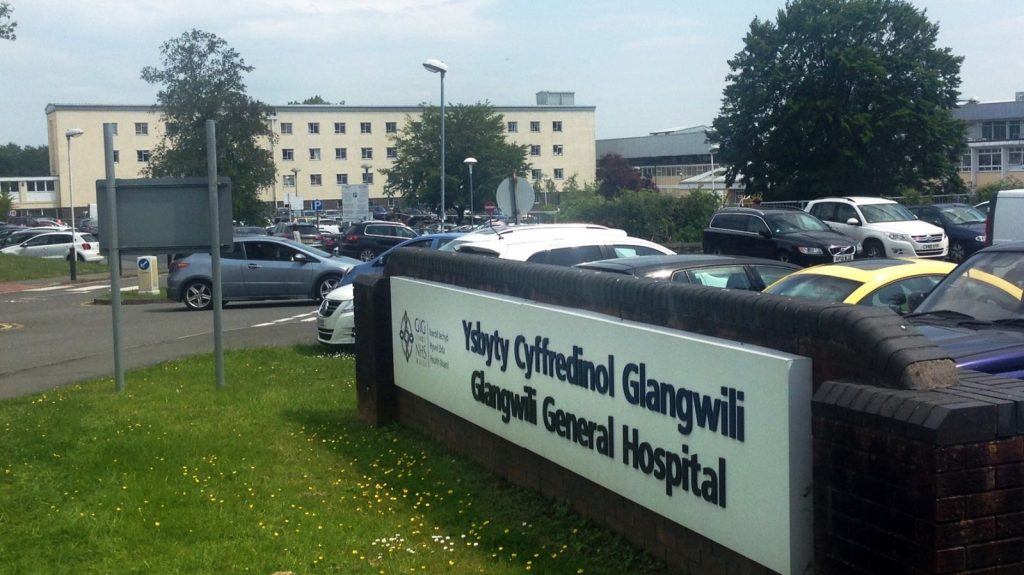
Future role of hospitals
The Board confirmed the intended future roles of the four main hospitals:
• Bronglais Hospital — broad range of services.
• Glangwili Hospital — increasing focus on acute and emergency care.
• Prince Philip Hospital — expanding planned care role.
• Withybush Hospital — increased planned care activity while continuing initial emergency access.
Health leaders emphasised there would be no change to how patients access emergency departments or minor injury units.
Board leaders respond
Health Board Chair Dr Neil Wooding said the changes were necessary to secure services for the future.
“Our ambition is for people to live healthier lives for longer by supporting people to keep well and preventing ill health,” he said.
“These decisions are not easy, but as a Board we have a duty to ensure that our services provide the best outcomes for our patients and meet the highest standards.”
Lee Davies, Executive Director of Strategy and Planning, said most services now had a clear direction.
“Our priority is always to deliver the highest standards of care for our patients across Hywel Dda and neighbouring communities,” he said.
Next steps
Detailed implementation plans will now be developed, with further engagement expected in areas where decisions are not yet finalised, particularly stroke services.
Patients are being advised to continue attending appointments as normal while the changes are planned.
More information, including board papers and meeting recordings, is available via the Health Board website.
Community
Town council grant helps secure community arts activity in Milford Haven
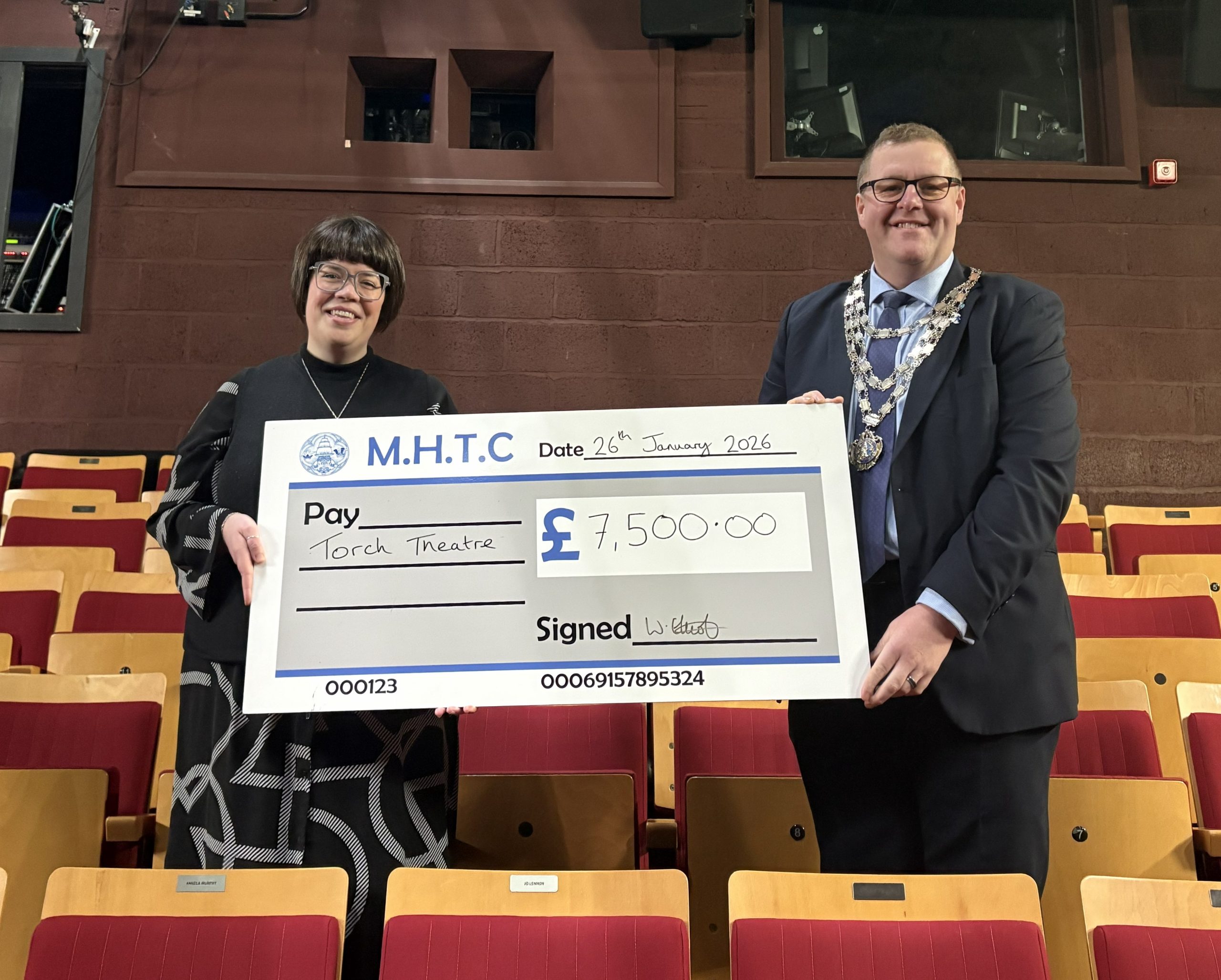
MILFORD HAVEN’S Torch Theatre has been awarded a £7,500 grant by Milford Haven Town Council, continuing a long tradition of support for community arts at the iconic venue.
Established in 1977 with significant backing from the Town Council, the Torch Theatre remains one of only three building-based professional producing theatres in Wales. It is widely recognised for its in-house productions as well as its extensive youth and community programmes.
The theatre, which operates as a charity, receives public funding through the Arts Council of Wales and Pembrokeshire County Council, alongside support from local businesses and organisations including Milford Haven Port Authority. Leaders at the venue say funding remains essential to maintaining its broad programme of events and activities for the community.
Chelsey Gillard, Interim CEO and Artistic Director at the Torch Theatre, said: “Being awarded grants such as this one from the Town Council helps us to deliver quality arts to the people of Milford Haven, Pembrokeshire and further afield.
“We are very grateful for this continued support and appreciate the work of the Town Council to ensure important provision is supported across Milford.”
The Torch hosts more than 2,000 events and activities each year, attracting over 100,000 visitors. Its community facilities include The Junction, home to the Torch Youth Theatre and a rehearsal space for professional productions. The main auditorium seats 300 people, while the Studio Theatre accommodates 102. The Joanna Field Gallery showcases local exhibitions, and Café Torch serves meals throughout the year.
Ms Gillard added: “We do so much more than what audiences see on stage. Just to name a few of our regular activities, we run a very popular Youth Theatre for ages seven to eighteen, facilitate relaxed environment screenings and shows, host a Welsh learners’ group, Coffi Cymraeg, and hold regular clothes swaps.
“The Torch is also home to Welsh National Opera’s critically acclaimed Cradle Choir for people living with dementia and lots of high-quality classes for adults with disabilities run by Arts Care. All this activity relies on our team of brilliant volunteers and support from grants, trusts and donations.
“This grant will go towards ensuring these activities can continue — thank you.”
-

 Business2 days ago
Business2 days agoMS’s host business advice surgery following demand from Business Rates Online Forum
-

 Crime6 days ago
Crime6 days agoFour arrested in armed police operation across Pembroke Dock
-

 Community4 days ago
Community4 days agoHywel Dda hospital services decisions will be made next week
-

 Health5 hours ago
Health5 hours agoWithybush loses emergency surgery in shock health board decision
-

 Education6 days ago
Education6 days agoSchool in special measures after inspectors raise safeguarding and leadership concerns
-

 Community5 days ago
Community5 days agoSecond Milford Haven webcam launched after 1.3m views and US TV feature
-

 Business3 days ago
Business3 days agoSvitzer crews at Milford Haven vote for industrial action in pay dispute
-

 News6 days ago
News6 days agoClimber dies and two injured in St Govan’s Head fall























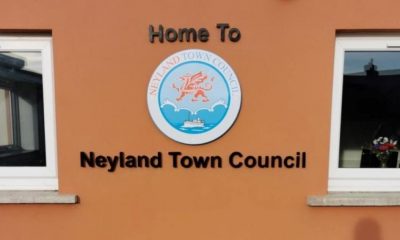



becoming a campus security professional
January 5, 2026 at 7:34 pm
I love how you addressed this issue. Very insightful!